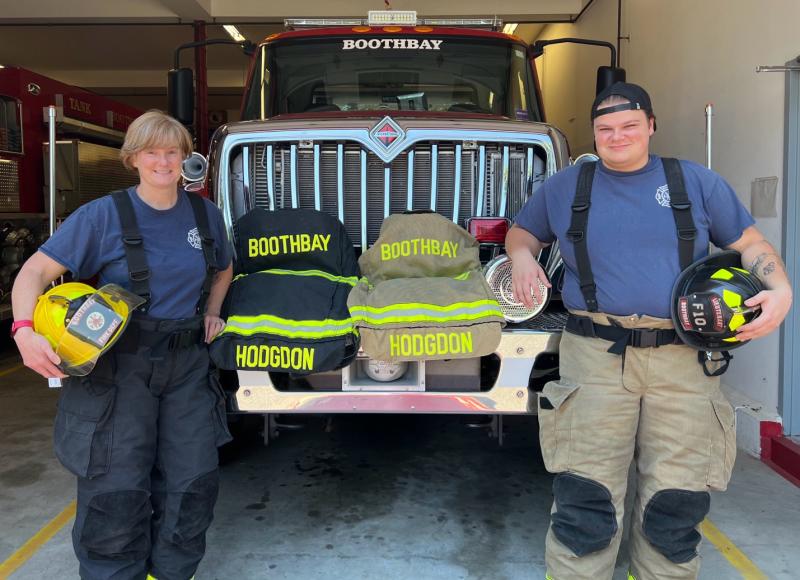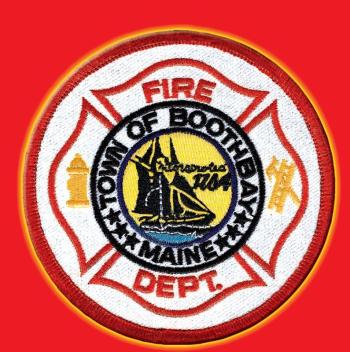Welcome to our second edition of the Chief’s Corner. In this column we will focus on campfire safety, and whether you are enjoying a campfire at your home, an RV or state park, or backpacking and tenting in designated areas, taking the appropriate safety precautions and planning for your fire as well as following some basic steps will make enjoying the long days and cool nights around a campfire very enjoyable.
Campfires, a quintessential part of outdoor adventures require careful management and adherence to safety protocols to prevent unintended consequences.
According to the U.S. Forest Service, nearly 85 percent of wildland fires in the United States are caused by humans. Human-caused fires result from campfires left unattended, the burning of debris, equipment use and malfunctions, negligently discarded cigarettes, and intentional acts of arson.
Additionally, while we have all seen horrific pictures of wildfires burning homes and communities, according to numerous studies during wildfires as many as 90% of homes and buildings damaged or destroyed were first ignited by embers or other fires set by embers, and not the main wildland fire front.
The state of Maine has enacted new, rigorous campfire and burn permit laws to prevent fires. Maine is the most forested state in the United Sates, and with recent severe winter storms which downed many trees, combined with a warming climate, the level of “fuel load” in our forests – dead trees, branches and brush has reached significant levels.
By definition, a "recreational campfire" means an outdoor fire that is used for cooking, personal warmth, light or ceremonial or aesthetic purposes and that is not a part of debris disposal (AKA burning brush). A residential fire contained within an outdoor fireplace also falls into this category.
According to the new law a person who kindles or uses a recreational campfire may not allow the recreational campfire to exceed 3 feet in diameter on the ground at the base of the fire or 3 feet in height. If the fire exceeds that size, then a burn permit is required. The new law also makes it unlawful for burning outdoors during red flag warning days.
Maine residents and visitors planning fires larger than the specified dimensions, often referred to as "bonfires," will be required to obtain burn permits. These permits are available free of charge and can be secured online after 9 a.m. at maineburnpermit.com
It is essential to know the basics of fire safety. In the right conditions, a small fire can easily get out of control and cause untold damage to surrounding areas. Listed below are an example of campfire safety tips,
SAFETY AROUND THE CAMPFIRE
- Before setting up a campfire, be sure it is permitted. Check with your local fire department.
- If campfires are permitted, they need to be at least 25 feet away from any structure and anything that can burn.
- Clear away dry leaves and sticks, overhanging low branches and shrubs.
- Avoid burning on windy, dry days. It is easier for open burning to spread out of control when it is windy and dry.
- Watch children while the fire is burning. Never let children or pets play or stand too close to the fire.
- Attend to the campfire at all times. A campfire left alone for only a few minutes can grow into a damaging fire.
- Keep a campfire small which is easier to control.
- Never use gasoline or other flammable or combustible liquids.
- Always have a hose, bucket of water, or shovel and dirt or sand nearby to put out the fire. When it's time to put the fire out, dump lots of water on it, stir it with a shovel, then dump more water on it. Make sure it is COLD before leaving the campsite. If it's too hot to touch, it's too hot to leave!
- If your clothes catch fire, stop, drop, and roll. Stop, drop to the ground and cover your face with your hands. Roll over and over or back and forth until the fire is out.
- Treat a burn right away. Cool the burn with cool water for 3 to 5 minutes. Cover with a clean, dry cloth. Get medical help if needed.
National Fire Protection Associate Campfire safety tips (https://www.nfpa.org/downloadable-resources/safety-tip-sheets/campfire-safety-tip-sheet)
Following these tips will help you and your family enjoy the outdoors, and spending time in front of a warm campfire safely and securely.
Consult with your local fire department if you have any questions, and if campfire spreads call 911 immediately, as a fire doubles in size every 60 seconds.
There is a wealth of information available online regarding campfire safety, and the following sites are a few examples that provide very relevant information.
https://www.maine.gov/dacf/mfs/forest_protection/
https://www.maine.gov/dacf/mfs/
https://www.maine.gov/dacf/mfs/wildfire_danger_report/index.html
https://www.fs.usda.gov/visit/know-before-you-go/fire
https://www.nfpa.org/downloadable-resources/safety-tip-sheets/campfire-safety-tip-sheet
https://smokeybear.com/en/prevention-how-tos/campfire-safety
We hope everyone is enjoying and learning from the Chief’s column, and in this week installment we will add a new segment entitled Boothbay Firefighter profiles. This is an opportunity for you to learn more about the men and women who volunteer their time, 356 days a year, 24/7 to service our community. These firefighters are your neighbors, and we hope this series gives you a bit more insight into our great team and what we do. We will profile two fire fighters in every column, so keep coming back to meet your neighbors!
Boothbay Fire & Rescue Firefighter Profiles
Andrea Hodgdon
Years at Boothbay Fire: 2
Role at Boothbay Fire: Advanced Firefighter
Full Time Employer: Knickerbocker Group Inc.
Why did you join the fire service?
My kids were all grown and away at college, so I found I had some time on my hands. I wanted to find a way to give back to the community I've lived in my whole life. My son, Gareth, was/is on the department and I loved talking with him about what he's doing, listening to him talk about helping people and the camaraderie within the department, and across the fire service. I've always been a hands-on person, so the fire department was a good fit. AND I get to respond to calls with my son!!
What do you like about the fire service?
Helping people, of course! But beyond the obvious; Every call is different and there is always something to learn. Learning by doing, keeping your eyes and ears open at incidents and drawing off the knowledge of officers and longtime members is fascinating to me. There isn't a call that I haven't learned something new.
What have you learned since joining?
A lot! Joining only 2 years ago as someone with absolutely no experience, I have learned: emergency scene traffic control, interior and exterior firefighting, reading the fire, scene safety, incident command, wildfire control, vehicle extrication, basic HazMat and how to operate and drive the apparatus (trucks). But there is still so much more to learn.
Gareth Hodgdon
Years at Boothbay Fire: 6
Role at Boothbay Fire: Lieutenant, Advanced Firefighter, EMT Certified
Full Time Employer: Bath Fire Department
Why did you join the fire service?
I joined the Boothbay fire department as a junior, honestly, because one of my friends was doing it, and it would take care of my community service hours I had to do for high school. At the time I had no idea what I wanted to do for a living, but I immediately fell in love with the fire service and knew this was the career I wanted to pursue.
What do you like about the fire service?
My favorite thing about the fire service is probably the camaraderie. It really is a brother and sister hood that a lot of people don’t understand outside of the fire service. If a fellow member needs help or is going through a hard time we go above and beyond to help and support them in ways you rarely see in other occupations.
What have you learned since joining?
Now that is a loaded question. I’m obviously not going to sit here and list out every little thing I have learned about firefighting operations, which is ALOT. The biggest thing I have learned is how to work as a team, to most effectively serve our community. At its very core, firefighting is a team effort and has no room for lone wolves or freelancing. We try to work as a team in the most effective way possible with everything we do, regardless, if it’s on the fire ground at fundraising events or any other endeavor the department takes on, no one goes in alone.

































.png)
.png)

